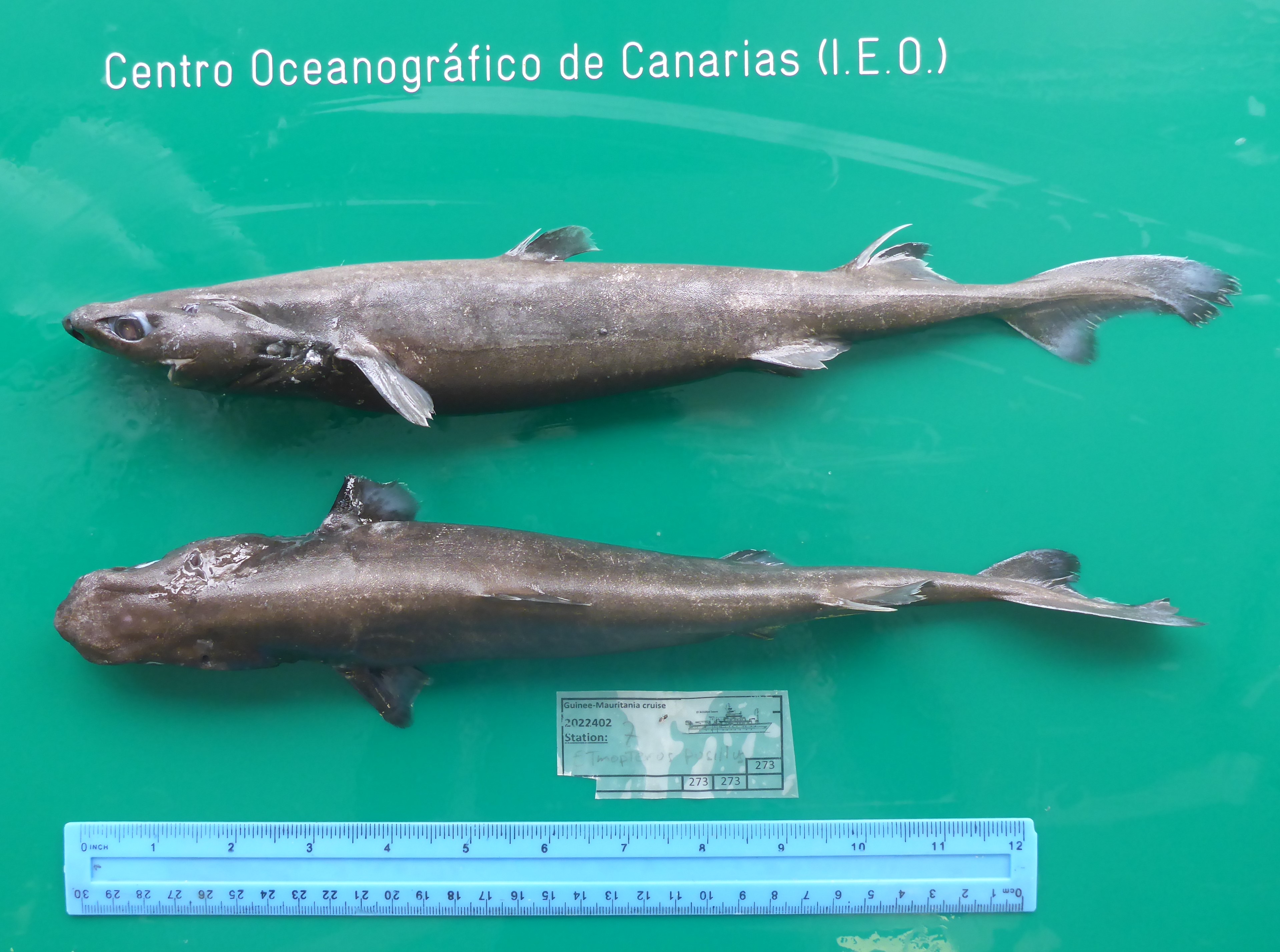The Spanish Institute of Oceanography in Tenerife to host first fish taxonomy workshop by the EAF-Nansen Programme
The Spanish Institute of Oceanography (IEO) in Tenerife, Spain, will host a series of post-survey workshops in fish taxonomy research, organized by the EAF-Nansen Programme, to improve the capacity of scientists from the partner countries to conduct taxonomy work for better management of their fisheries resources.
 |
 |
|
Iván Casañas Machín & Filipe Tobana Nhanquê during the practical demonstration on sampling procedures © FAO/P.N. Psomadakis |
|
The first workshop will take place from 21 to 25 November 2022, including a selection of local scientists who participated in the recent EAF-Nansen programme research survey, carried out in Cabo Verde waters from 19 November to 15 December 2021 on board the research vessel, Dr Fridtjof Nansen.
Differently from standard regional taxonomy courses organized by the EAF-Nansen programme, these post-survey workshops will mostly focus on practical work, including only a minimum of theoretical lectures. During the workshop in Tenerife, the local scientists will study taxonomically relevant fish specimens collected in the course of the Cabo Verde survey, and will be guided through standard work procedures in fish taxonomy that go from obtaining high-quality quantitative taxonomic data to writing and submitting manuscripts for publication in internationally recognized scientific journals.
The training will be led by FAO fish taxonomist, Dr Peter Psomadakis, who visited the Institute earlier to give a practical demonstration to the IEO staff, including Mr Iván Casañas Machín, curator of the institute’s biological collections, on sampling procedures that are carried out during the Nansen research surveys, as well as the techniques for interim storage of fish samples (from a collection site to the lab) and preparation of fish for scientific photography.
“Leveraging the level of competence and engagement of the scientists from the EAF-Nansen programme partner countries in taxonomy research/studies/work will help the countries close the missing gaps in terms of quality of fisheries data and in the long-term, it will certainly help improve fisheries management in those countries,” said Dr Psomadakis.
The demonstration by Dr Psomadakis also benefited Mr Filipe Tobana Nhanquê - a visiting marine biologist from the Centre for Applied Fisheries Research in Guinea-Bissau - who is currently undergoing a 6-month training at IEO Institute in Tenerife, as part of an education programme funded by the Spanish Agency for International Development Cooperation.
 |
|
Smooth laternshark (Etmopterus pusilus) collected during the Nansen survey in West Africa in 2021 and used during the practical demonstration © FAO / P.N. Psomadakis |
“I'm proud to have been part of this course, as it provided me with an opportunity to improve my current knowledge on identification process of fish specimens,” said Mr Tobana Nhanquê. “I am glad I will be able to bring the newly acquired skills and information back home, in Guinea-Bissau,” he added.
During his visit in Tenerife, Dr Psomadakis also met with the director of IEO Institute, Dr. Pedro Vélez-Belchí, and his staff after having participated in a recently accomplished scientific survey in Northwest Africa that covers an area from Morocco to the southern border of Guinea. A total of 270 fish samples collected from the survey will now be added to the current biological collections of the IEO Institute in Tenerife, Spain. A number of new geographical records for the Central East Atlantic region as well as possible undescribed species are also part of the collected material from this survey.
"The Spanish Institute of Oceanography in the Canary Islands was created more than 90 years ago, with the aim of focusing on understanding all the aspects of the Canary Current Large Marine Ecosystem,” said Dr Vélez-Belchí. “It is a pleasure for us to host a workshop in fish taxonomy by FAO EAF-Nansen Programme that will contribute to improving the quality of the collected fishery data and fisheries management at large,” concluded Dr Vélez-Belchí.
Taxonomy trainings represent an integral part of the EAF-Nansen programme technical training network, aimed at strengthening the knowledge base on marine resources and biodiversity in partner countries in Africa and Asia. The trainings forge collaboration among participants from different institutes, universities and research centers within a given country or region. This in turn promotes knowledge sharing and contributes to improving the quality of fishery data for a stronger future fisheries management.
